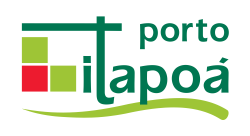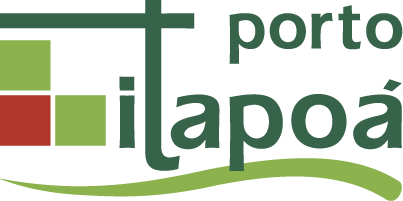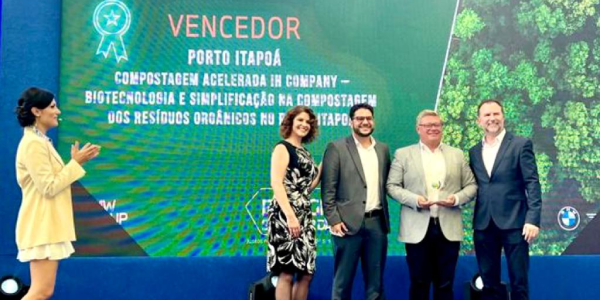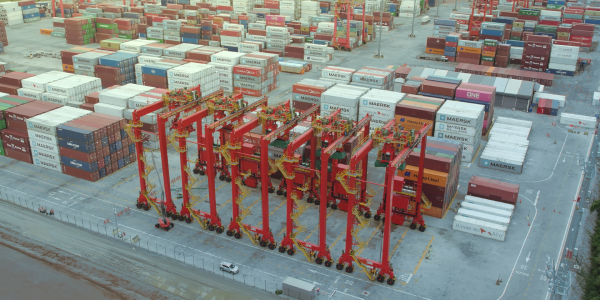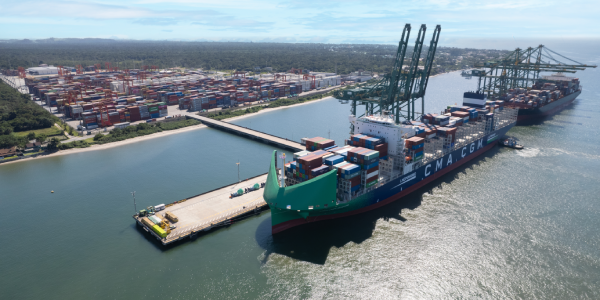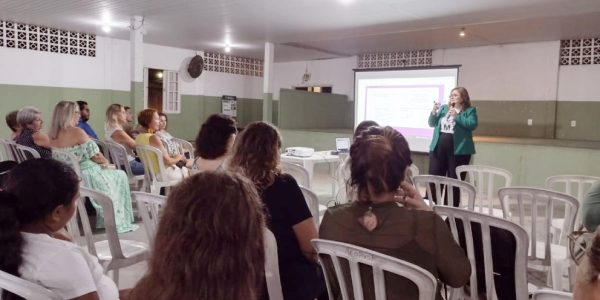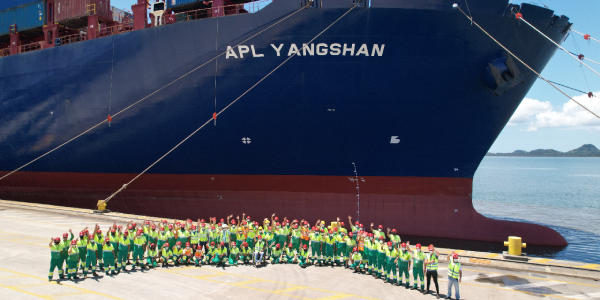
The largest ship in Porto Itapoá’s history has docked – 347 meters in length

Porto Itapoá beats its cross-docking exports record in 2022
The award was created to celebrate initiatives dedicated to sustainable transport and social responsibility by suppliers to the German company
Porto Itapoá wins BMW’s Supplier Day 2022 Award
Porto Itapoá won the Supplier Day 2022 award, presented by the BMW group, which celebrates initiatives by its suppliers that are dedicated to sustainable transport and social responsibility. The Santa Catarina port was the only company in the logistics and foreign trade sector to compete in the sustainability category.
The winning initiative was an accelerated composting program using biotechnology, which the Terminal had been running since last February (2022). Roberto Pandolfo, the director of Business Development and Customer Experience at Porto Itapoá, and Christiano José de Anhaia Pereira, the Environment manager, received the award.
According to Pandolfo, the program is based on two fundamental principles of Porto Itapoá: environmental responsibility and innovation. “When the company became involved in the innovation ecosystem in Joinville, we found out about Organa Biotech, a biotechnology company that aims to turn organic waste into high quality fertilizer, using a method that is legally compliant and environmentally friendly,” he explained.
This solution provides fast, compact compost and also eliminates the negative impact of disposing of organic waste in the normal way. The biotechnology used is produced locally; it uses local fungi and bacteria, which is already adapted to the climate and environment. This has benefits over imported products that use bacteria and fungi that are not suited.
An Award for Porto Itapoá’s Safety Program
Porto Itapoá achieves the GHG Protocol gold seal
Porto Itapoá presents their first Sustainability Report
Benefits
Accelerated composting means that the Porto Itapoá no longer needs to transport waste to landfill, explained Christiano José de Anhaia Pereira, the Environment manager. “As well as eliminating the pollution from transporting it, it also fulfills an important function in the carbon chain, as it turns organic waste into a product that can be incorporated into the earth and sequester the carbon”, he added: “Then, when it is used for planting, it sequesters more carbon because of the plant’s photosynthesis.”
The product created from the waste is treated and is then ready for use in projects to complete the cycle for organic matter. “We can also give compost to staff to use in their own gardens at home. So there are further benefits in terms of food security and social well-being”, mentioned Christiano Pereira.
Results
The process is still only months old, so it is still being modified, but they have already accounted for the impact on transport costs and disposing of organic waste and estimated future returns.
Overall, they dealt with 21 metric tons of waste in 10 months, 19 tons of which was organic waste. They estimate that they have avoided using 2,500 plastic bags by changing the process to use buckets and barrels, which has reduced the amount of plastic used and the consequent CO² emissions.
They also produced seven metric tons of organic compost, a small part of which was given away during Environment Week and most of the rest is being reused in the current composting process. Finally, thanks to the composting in Porto Itapoá, they have avoided emitting over 150 tons of CO² into the environment, based on the fact that both the landfill and co-processing solutions used previously, generate higher CO² emissions than composting .
